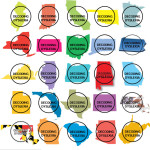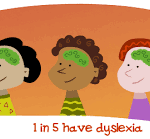It was 41 years ago that special education came to life. Yet, still today we often don’t think of a child in special education as being “smart.” It’s no surprise that as I write this, there are laws being changed to better address how we define and discuss disabilities. With the grass roots help of the Parent-Driven Group, Decoding Dyslexia (http://www.edweek.org/ew/articles/2015/12/09/parent-driven-group-wields-influence-on-dyslexia-concerns.html) we can now be thankful that the state of California (among 50 other states) will take seriously the idea that a Reading Disability is in fact Dyslexia.
Every year we have dozens of families come to our offices looking for someone who will give them answers about Dyslexia. They say that the school can’t talk about it, as if it’s some naughty word. Well, folks meet: AB 1369, or Ed Code Section 1: 56334 The state board shall include “phonological processing” in the description of basic psychological processes in Section 3030 of Title 5 of the California Code of Regulations.
and Section 2: 56335 (a) The Superintendent shall develop program guidelines for dyslexia to be used to assist regular education teachers, special education teachers, and parents to identify and assess pupils with dyslexia, and to plan, provide, evaluate, and improve educational services to pupils with dyslexia. For purposes of this section, “educational services” means an evidence-based, multisensory, direct, explicit, structured, and sequential approach to instructing pupils who have dyslexia.
What this means for kids? Better identification, better communication to families, and of course, better treatments in the schools. You see, we must first understand the nature of a condition in order to properly treat it. Now, if we could only update the other 12 special education criteria to keep up with science.


